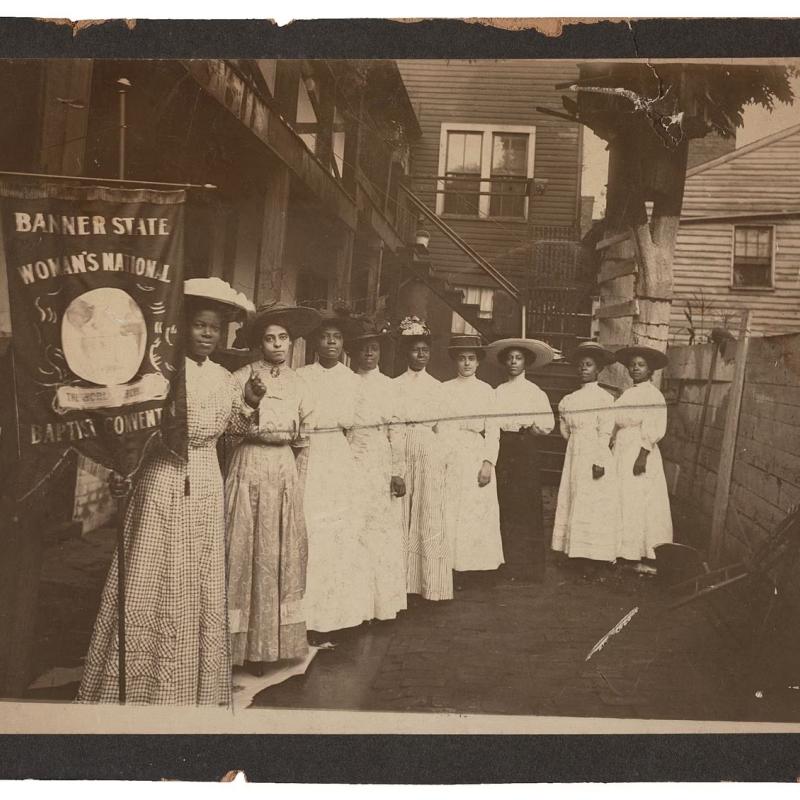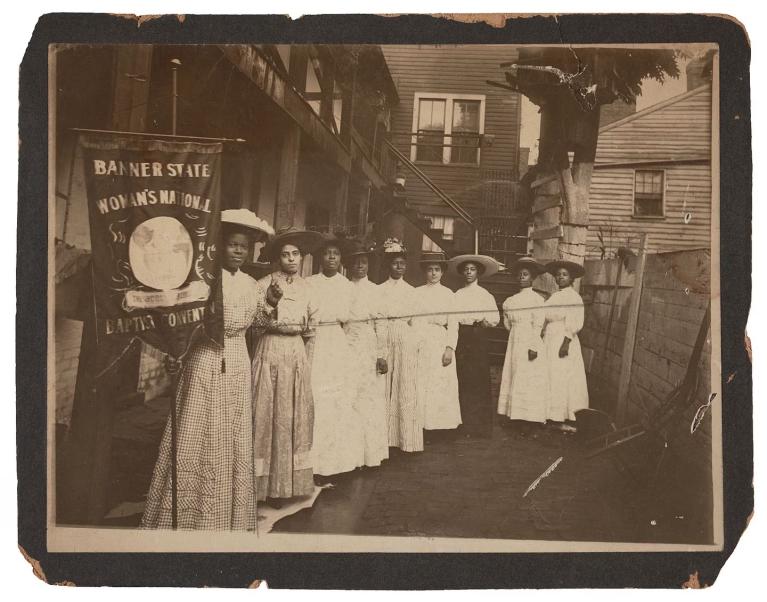Editor's note: the following story originally appeared in The Boston Globe Magazine, written by Fredie Kay and Katrina Huff-Larmond.
Suffragists fought bias and a pandemic to vote. A century later, we owe it to them to do the same
Exercising your right to vote in the 2020 election won't always be easy, so it's time to follow the lead of the courageous women who fought for the 19th Amendment.
Election Day is on the horizon, but the ability to cast a ballot is increasingly precarious for many Americans who are fighting to secure the right to vote, especially marginalized groups such as women and people of color. Meanwhile, a pandemic is raging across the nation with little sign of letting up.
Sounds like 2020, doesn’t it? But this bleak scenario describes what was happening 100 years ago, when suffragists fought for and won the historic right for women to vote. The parallels between that long-ago era and today’s current events are uncanny. Just as suffragists contended with the perils of the 1918 Spanish flu pandemic that upended daily life — complete with masks, social distancing, and stay-at-home orders — today we find ourselves grappling with similar challenges during a momentous election year when every vote counts.
The dangers of the pandemic pose a threat to high voter turnout in the 2020 presidential election. But we cannot let these challenges stop Americans from fulfilling the most essential part of our democracy. One hundred years ago, these groups pushed through the challenges of public opinion and a deadly pandemic for the right to vote. And we owe it to them — and to ourselves — to make sure our votes are counted this time around.
Just as hundreds of thousands of Americans took to the streets in protest after George Floyd’s murder at the hands of police, the suffragists made their voices heard. In 1918, they fought tirelessly to defeat Republican Senator John Wingate Weeks of Massachusetts, who opposed women’s suffrage. They held rallies across the state and waged a public campaign in the press critical of his anti-progressive voting record, ultimately orchestrating his defeat to Democrat David Walsh, a suffrage supporter.
On February 24, 1919, as the pandemic continued, an outdoor parade was held at the State House for President Woodrow Wilson upon his return to the United States after World War I peace negotiations in France. He was greeted by nearly two dozen suffrage protesters, who were promptly arrested and jailed at the Charles Street Jail.
For decades, women in Massachusetts fought tirelessly for freedom and the vote. Yet many people don’t realize that Black women helped pave the way to victory and played a pivotal role in the passage of the 19th Amendment, which prohibits federal and state governments from denying citizens the right to vote on the basis of sex.
Black women helped lay the foundation for suffrage long before the 19th Amendment became a possibility. Elizabeth Sheffield, also known as Bett and Mum Bett, was born into slavery in approximately 1742, and lived in Sheffield. Several years after hearing prominent men in the house where she was enslaved talking about the words of the Massachusetts Constitution — declaring that mankind is equal and free — Mum Bett successfully sued in 1781 to have it apply to her, which led to outlawing slavery in Massachusetts in 1783.
Sojourner Truth, a former slave who escaped to freedom with her infant daughter, was a social reformer who spoke out against discrimination and in favor of women’s suffrage, including at the first National Woman’s Rights Convention, in Worcester in 1850.
Despite efforts by Black women to participate in mainstream suffragist organizations, racism divided the movement and they were discriminated against. They formed their own activist groups, including the Woman’s Era Club, created by Josephine St. Pierre Ruffin and Maria Baldwin in Boston in 1893, which also advocated for improvement in the lives of Black citizens, championed women’s suffrage, addressed local politics and education, and decried terrorist acts against Southern Black people such as lynching.
The injustices they faced still exist today, even as a new civil rights reckoning has swept the country demanding equal treatment, regardless of race. Black women haven’t received the recognition they deserve for their enormous contributions to the suffrage movement.
We are heading into a historic election season in which the first Black woman and the first candidate of Indian descent, Senator Kamala Harris, is on a presidential ticket. Every voice and every vote counts. A vote-by-mail application has been mailed to every person in Massachusetts who was registered to vote before July 1. You can still request a mail-in ballot until October 28 to vote in the general election on November 3. And don’t forget: You can still vote in person at the polls.
The suffragists sacrificed and worked courageously for more than 72 years for our rights. Don’t let the pandemic keep you from voting. It didn’t stop them.
__________
Fredie Kay is founder and president of Suffrage100MA, a nonprofit dedicated to commemorating the centennial of the 19th Amendment. Katrina Huff-Larmond is vice president of Suffrage100MA and town councilor in Randolph. Send comments to magazine@globe.com.

